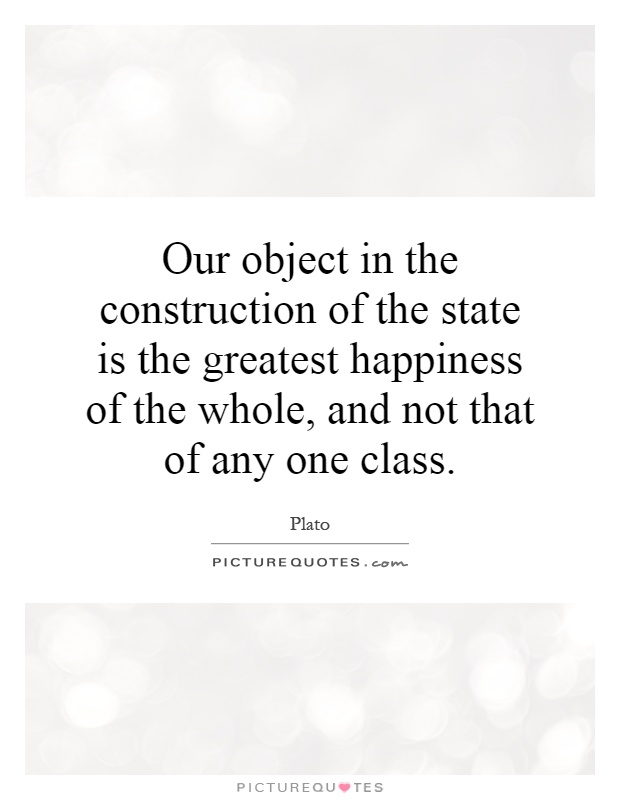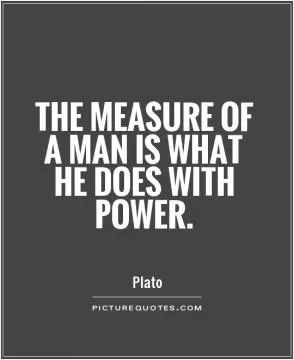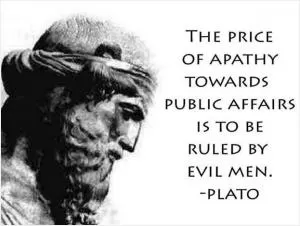Our object in the construction of the state is the greatest happiness of the whole, and not that of any one class

Our object in the construction of the state is the greatest happiness of the whole, and not that of any one class
In the context of Plato's political philosophy, the idea that the object in the construction of the state is the greatest happiness of the whole, and not that of any one class, is a central theme that can be found throughout his works, particularly in "The Republic." Plato believed that the ultimate goal of the state should be the well-being and happiness of all its citizens, rather than just a privileged few.Plato argued that a just state should be structured in such a way that all citizens have the opportunity to live a fulfilling and virtuous life. In "The Republic," he outlines his vision of an ideal state, which is governed by philosopher-kings who are guided by reason and virtue. These philosopher-kings are not motivated by personal gain or self-interest, but rather by a desire to promote the common good and ensure the happiness of all citizens.
Plato believed that in order to achieve the greatest happiness of the whole, the state must be organized in a hierarchical manner, with each individual fulfilling their proper role in society. He argued that each citizen has a specific function or role to play in the state, and that by fulfilling this role to the best of their ability, they contribute to the overall harmony and well-being of the state.
Plato's emphasis on the happiness of the whole, rather than that of any one class, can be seen as a rejection of the prevailing political ideologies of his time, which often prioritized the interests of the ruling elite over those of the common people. By advocating for a state that is governed by reason and virtue, Plato sought to create a society in which all citizens could live a life of fulfillment and happiness.
Overall, the idea that the object in the construction of the state is the greatest happiness of the whole, and not that of any one class, is a central tenet of Plato's political philosophy. By prioritizing the well-being of all citizens and advocating for a just and harmonious society, Plato's vision of the ideal state continues to be a source of inspiration and debate in political theory.












 Friendship Quotes
Friendship Quotes Love Quotes
Love Quotes Life Quotes
Life Quotes Funny Quotes
Funny Quotes Motivational Quotes
Motivational Quotes Inspirational Quotes
Inspirational Quotes